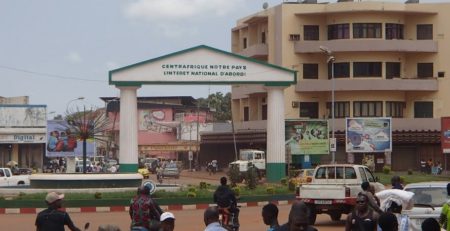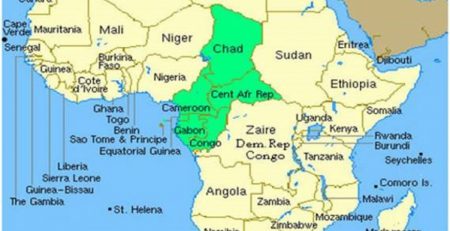CONGO – Four new decrees implementing Law No. 2016 28 of 12 October 2016 relating to Hydrocarbon Code
Four new decrees, all dated November 15, 2019, set out the terms and conditions of application of Law No. 2016 28 of October 12, 2016 relating to Hydrocarbons Code. Published in the OFFICIAL GAZETTE OF THE REPUBLIC OF CONGO No 47 of Thursday 21 November 2019, these decrees are summarized below in their main points:
Decree No 2019-342 laying down the conditions and procedures of subcontracting in the oil sector
- It defines in the Oil business the concepts of subcontracting, oil operator, and subcontractor
- It determines the types of companies authorized to carry out subcontracting activities in the territory of the Republic of Congo
- It sets a minimum participation of at least 30% of the capital owned by Congolese, to be eligible for the practice of subcontracting activity in the upstream oil sector.
- It requires from operators in upstream subcontracting in the oil sector in Congo, to obtain an agreement by type of activity, renewable for two-year, issued by the Minister of Hydrocarbons
- It submits subcontracting activity in the upstream oil sector to the tender procedure. Only compagnies with an authorization issued by the Minister in charge of hydrocarbons are allowed to bid on tenders
- Payments made by oil companies to subcontractors and payments made by subcontractors to third parties in remuneration for work performed in the territory of the Republic of Congo, must be done through the Congolese banks.
- Licensing and renewal of the agreement are subject to payment of a fee payable to the public treasury
- Oil subcontractors are bound to provide a copy of the contract to the divisional Hydrocarbons office within 30 days after its signature, otherwise the said contract will be not applicable.
Decree No 2019-343 setting out the conditions and modalities of exercise of the supply of service in the oil sector
- It defines in the oil business the concepts of: petroleum goods, non-oil goods, petroleum services, non-oil services, supply of goods, provision of services, service providers, and local markets;
- The procurement process for goods and services in the upstream oil sector is bidding
- Companies wishing to contract for goods and services deliveries are required to include in their specifications, the local content clauses, whose list of tenderers established in this call for competition by companies in the upstream oil sector must be validated by the Republic of Congo;
- Any company wishing to initiate the procurement process must first inform the Minister in charge of hydrocarbons;
- Representatives of Congo participate in all selection operations from the analysis to the award of the contract;
- The supply of goods, the provision of services and personnel are subject to the obtention of an authorization to practice issued by the Minister of Hydrocarbons, after investigation;
- Obtention of the authorization to practice is subject to the payment of an annual fee, which varies according to the share capital and revenue of the goods, service, or man power provider.
- Any procurement of goods and services passed by upstream oil companies in violation of the provisions of this order is null and void.
Decree No 2019-344 setting out the sanctions related to non-compliance with the provisions relating to Local Content, in the upstream sector
- It sets financial penalties ranging from XAF 20 million to XAF 200 million for non-compliance with the employment and training provisions for Congolese personnel, such as:
- Failure to provide annual recruitment, mentoring, training program
- Non-compliance with the recruitment, companionship and training program
- The submission of fake references contained in the application file for work authorization for an expatriate
- It sets financial penalties ranging from XAF 20 million to XAF 250 million, for non-compliance of provisions for the promotion and use of local goods and services such as:
- The use of subcontracting companies without approval or non-compliant;
- Companies with a tendering procedure that does not comply with the production sharing agreement;
- Prior non-validation of Local Content clauses
- The non-execution by the company holding (subcontractor) the contract of the Local Content clauses present in its contract
- Failure to submit half-yearly works and purchases program
- Non-compliance with the minimum percentage of Congolese originating costs
- Mutual agreement(OTC) procurement without prior approval
- Subcontracting company operating out of its scope of activities
Decree No 2019-345 regulating employment, promotion and training of Congolese personnel in the oil sector
It defines, in accordance with the Oil and Gas Code and the Labor Code, the regulations applicable to the employment, promotion and training of Congolese personnel in the hydrocarbons sector.
- Priority should be given to Congolese personnel, who should receive adequate training, promotion, companionship and remuneration, in accordance with existing regulations and collective agreements, applicable, and practices in the oil sector without distinction between nationals, and expatriates concerning bonuses.
- A recruitment contract-plan is required from subcontractors, service providers and suppliers in the hydrocarbon sector
- A diversified, systematic and planned training in contract-plan, must include the transfer of petroleum technology skills and management experience to Congolese nationals
- A Post Congolisation Plan must be submitted within (90) days of their establishment in the territory to the Minister in charge of hydrocarbons and the Minister in charge of employment for approval
- A physical and digital copy of the Human Resources Development Program and related revisions and any documentation required for the Human Resources Development Program must be submitted to the Ministry of Hydrocarbons and the Ministry of Employment
- The hiring of foreign personnel in the oil and gas sector is done only with the prior authorization of the Minister in charge of employment, for a maximum period of 5 years







